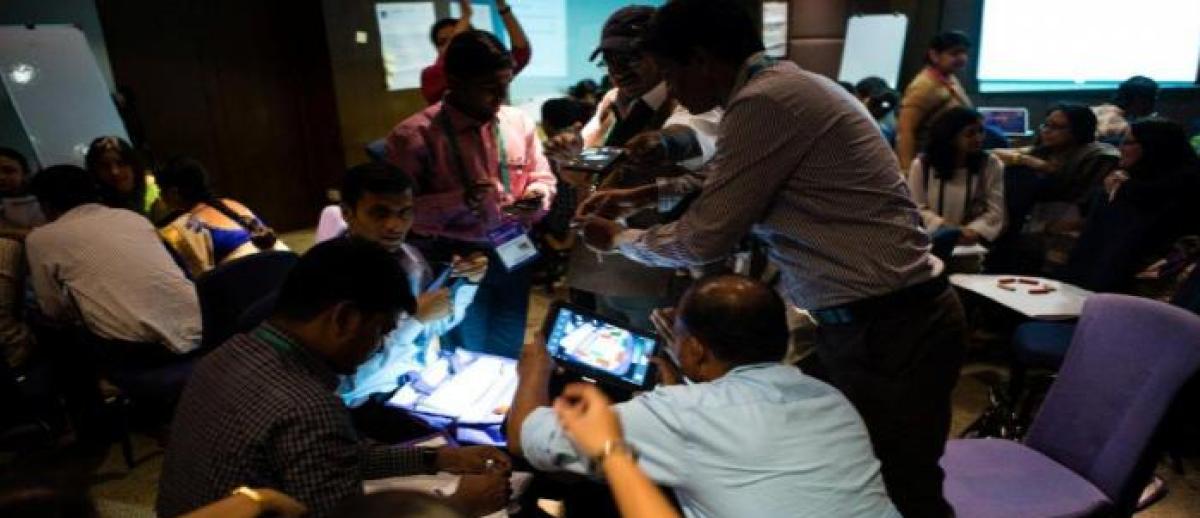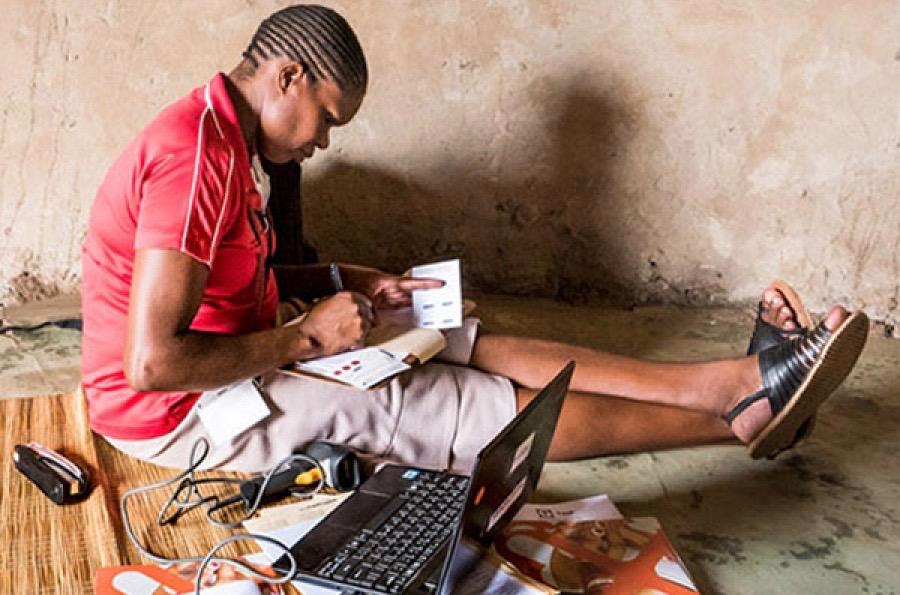Re-Visioning Research Methodology in Global Times
archive


Re-Visioning Research Methodology in Global Times
Although it is a fact that research methodology (RM), which has a variety of methods and techniques under its fold, periodically goes through necessary adjustments that one might liken to ‘stirring’, what it now requires is a far more intense process of ‘churning’. This is because globalization creates a new context that demands a fusing of ideational and empirical elements in such a way that researchers’ experience of the world outside has to be inscribed into research designs. This global context also mixes opportunities with predicaments. My basic contention is that in order to make social research more responsive to our current global times there is an increasing need both to overcome its narrow “introverted” focus on validity and reliability of research methods and techniques, and to take into account the changing political economy of research, specifically with regard to the new state-market dialectics. This changed research context is especially marked in developing societies, which tilts the focus of this essay to societies that have witnessed a dramatic refashioning of relations between the state and scholarly researchers while also undergoing an evolving engagement between commercial institutions and critical strands of social research.
Since the last quarter of the 20th century, RM has witnessed extensive renovation of its two foundational pillars. The qualitative mode, long undermined as “non-scientific” and “anecdotal” by advocates of quantitative methods, has struck back with renewed intellectual vigor. Many researchers now resort to case studies, narrative methods, focus groups, and innovative interview techniques with the aim of challenging the “technocratic ways” of data collection and analysis. Meanwhile the quantitative mode deploys new methodological tools that lay claim to greater accuracy of prediction, both as a proactive measure adding greater depth and spread to its scientific orientation and as a reactive measure to meet the challenges of qualitative research. Mixed methods are also being advocated in some quarters, which again points to a new methodological horizon marked by the cohabitation of hitherto “conflicting” modes of inquiry. These developments surely serve RM in terms of the plurality and diversity of methods and techniques. But such a process cannot be understood as a strictly “internal” or theoretical preoccupation because globalizing forces in developing societies are complicating the methodological parameters of social research.
Globalization – the Game Changer
Present day globalization is marked by a paradox: its “text” is being subverted by its sub-text. With regard to its text, globalization provides exceptional opportunities for extensive researcher interaction. The Internet facilitates real-time production, consumption, and dissemination of ideas with astonishing, awe-inspiring density and frequency. Websites, blogs, social networking platforms and social media themselves become objects of research. Without undermining the immense importance of physical connection through face-to-face interactions, one can point out that digital “connectivity” has expanded the scope for quantitative and qualitative transformations in social research and has had an impact on the content as well, inasmuch as easier access and exposure to research output from different corners of the globe induces researchers to explore beyond conceptual comfort zones generally marked by conventional terms, categories, (catch)phrases, rhetorics, and stereotypes.

Scientific collaborations 2005-2009. O. H. Beauchesne, Nature 490 (18 Oct. 2012).
The sub-text of globalization, on the other hand, creates an inevitable predicament related to the huge anxiety felt across broad segments of societies worldwide and from which social researchers have not been spared. Arjun Appadurai (2000) initiated discussion of this anxiety from within the American academic context and sought to counter it with the idea of “grassroots globalization” or “globalization from below” by way of “autonomous and democratic” stances. Having experienced (and survived) social science pedagogy beyond the northern/western hemisphere for three and half decades, I would underscore the point that even as globalization has impacted social research worldwide, the playing field between developed and developing societies is far from level. The roll back of the state has been more abrupt and hasty in the latter than the former. Developed countries had comparatively greater readiness and a more appropriate policy environment in place, not to mention the strong presence of the market for a much longer period. Also, in those countries corporate interests have long been a major sponsor of social research alongside the state. The situation was much different in developing countries, where the advent of the market only began since the 1990s and corporate-sponsored social research was more of an exception.
in order to make social research more responsive to our current global times there is an increasing need... to take into account the changing political economy of research, specifically with regard to the new state-market dialectics.
Social research in developing countries faced confusion with the arrival of the market and the growing impact of liberalization and privatization. India offers some telltale cues in this regard. During the earlier state-dominant era, funding for social scientists trickled down mostly through state-created agencies such as the Indian Council for Social Science Research and the University Grants Commission. Given the prevailing entrenched perception of the state as the dominant actor in development, numerous studies came out with wide ranging recommendations on improving its functions. In such studies the existence and role of the interventionist state was beyond contestation. The dominant research methods were inscrutably positivist and empirically driven, with the survey method being most popular. Some studies, however, would adopt different pathways within the positivist-empirical mode and set out to critique the state. Most such studies were products of “independent” scholarship by individuals and groups. Left-of-center studies would highlight the state’s repressive class character while centrist ones generally concerned themselves with the state’s disengagement from democracy and/or the crisis in governability. Even in the case of the state-funded “critical” studies the state itself showed a reasonable degree of tolerance, seeing no possibility (beyond purely academic imaginaries) of revolutionary change in the existing power structure. Under such “stable” conditions creative experimentation in RM was largely missing, at least in the mainstream arena of social science, and the RM courses at various universities suffered from an excessively “classroom” orientation which only reinforced the conventional menu of approaches. Moreover, some rare opportunities for restructuring RM were lost. For example, in the late 1980s scholar extraordinaire Rajni Kothari, in works like State against Democracy, Rethinking Development, and Politics and the People, left vital clues about rethinking politics and society and they could have paved the way for a revamping of RM. The new millennium, however, put an end to the status quo.

The market, traditionally more inclined to support “apolitical” research in natural science, began to show interest in the “study of society” during the time of millennial globalization. This brought social research within the purview of corporate funding in a major way. A notable aspect of the corporatization of social research is that, while it offers good funding opportunities, it at the same time poses severe challenge to hitherto dominant methods. With a paradigm shift underway in governance and the definition of development being radically reframed, social scientists now face the threat of irrelevance if they do not come up with appropriate methods and techniques to address the “new reality” of state-market dialectics. The state now functions in tandem with the market, and research studies obsessed with the stand-alone state can only produce anachronistic findings. Now one cannot but take into account the newfound connections between the state and the market, which have shed their adversarial relations to forge a “working relationship” based on mutual interest. This dialectic puts researchers in a fix: how does one measure the “tolerance” level of the market? The bewildering issue is the extent of the market’s willingness to sponsor critical analysis of its modus operandi. Market logic is less tolerant than the state logic that, as mentioned, has been indulgent toward critique. Corporate-sponsored research is often subject to meticulous surveillance of research findings to protect the fundamental agenda of the concerned agencies, which remain very sensitive about critical evaluations of neo-liberalism. Increasingly even the state, which is now a major partner in market-led development, may be weary of providing funds to research challenging the basic tenets of market-led development. The complex and nuanced knots of such control-mechanisms are not easy to negotiate because the market does not occupy the front desk of governance and its “invisible hand” prefers pulling strings from behind.
This dialectic puts researchers in a fix: how does one measure the “tolerance” level of the market? The bewildering issue is the extent of the market’s willingness to sponsor critical analysis of its modus operandi.
Conclusion
Contemporary globalization compels researchers to grapple with the emergent political economic environment in which social research tests the validity and reliability of methods and techniques. The hermetically (and hermeneutically) sealed pedagogy of RM must now undergo a process of ‘churning’ through engagement, from the point of research inception, with the wider field itself—whereby “field” here is meant not just geographically but as a political-economic space waiting to be addressed, problematized and negotiated by innovative and updated research methods and techniques. Accordingly, the methodological exercise has to be brought down from its exclusive higher academic pedestal and grounded in existential reality in order to serve the long-term interests of social research. Whether one likes it or not, the current global era presents social researchers with an option: either sharpen your craft, or fade into near-obsolescence.

Visualization of Chennai, India flood map. Source: futureearth.org
Arjun Appadurai, ‘Grassroots Globalization and Research Imagination’, Public
Rajni Kothari. State Against Democracy: In Search of Humane Governance.
------. Rethinking Development: In Search of Humane Alternatives. New Horizon
------. Politics and the People: In Search of a Humane India. New Horizon



